Sensor Sweep: Starbase, Scarlet Citadel, Baldur’s Gate
Monday , 2, September 2019 Sensor Sweep 4 CommentsScience Fiction (Kairos): Congratulations to Analog for coming up with a more concise and even lamer award name than the Montgomery Burns Award for Outstanding Achievement in the Field of Excellence. Then again, that award was created because Burns accidentally emasculated someone. The Astounding Award specifically recognizes emasculation.
Cinema (Walker’s Retreat): This is not just corporate fan fiction. This is everything that fan fiction routinely gets shat upon put forth front and center, and passed off as “original”. Yes, right down to all sorts of contradictory narrative incompetence and Very SMRT Boy signalling. Yes, we get exactly what Rey Sue was going to get at the end: a galaxy where she’s the only Force User, making The Force Is Female a literal fact. We get the last of the Original Trilogy notables dredged up and abused in service to Rey Sue before being removed from the stage.
Gaming (Niche Gamer): Frozenbyte has released another new trailer for their upcoming space sandbox game, Starbase. The new trailer, which you can find above, shows off the physics and mechanics involved in creating your own starships in the game.
Here’s a rundown of the game.
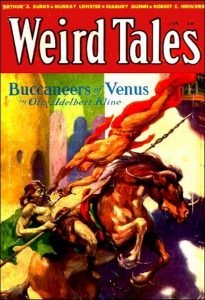
Fiction (Jon Mollison): As part of the on-going effort to challenge indy writers to do better, let’s take a look at two of the most popular guidelines: “Avoid passive voice,” and, “Show don’t tell.” To do so, check out the masterful opening to The Scarlet Citadel, by the king of sword and sorcery, Robert E. Howard.

Television (Wasteland and Sky): Now, am I arguing sitcoms are on the level of high art that have been usurped by pretenders looking for its glorious crown? Hardly. What I’m arguing is that it’s another medium that was usurped and replaced by those who wanted to use it as a weapon, and then destroyed.
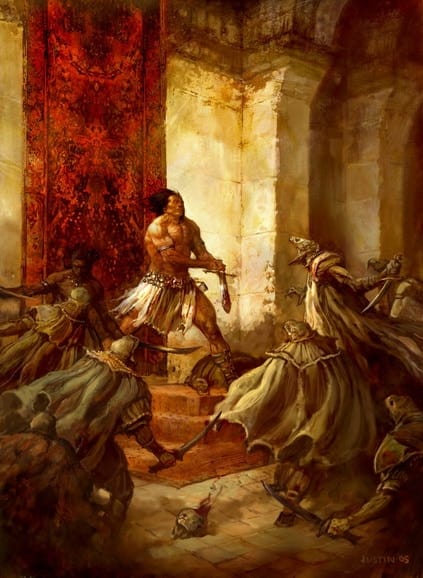
Sword and Sorcery (DMR Books): When “The Shadow Kingdom” by Robert E. Howard appeared in the pages of Weird Tales, no one would have guessed that it would continue to provide inspiration for fantasy authors for ninety years and counting. This remarkable story is often pointed to as the beginning of the sword and sorcery genre, although this opinion is not unanimous.
D&D Gaming (Polygon): One of the most delightful surprises of E3 2019 was the announcement of Baldur’s Gate 3. Die-hard fans of Dungeons & Dragons and computer role-playing games in general were ecstatic to learn that Larian Studios, creators of the excellent Divinity: Original Sin franchise, will be handling the project. Those same fans were notably confused, however, by the in-fiction timeline of Baldur’s Gate 3.

H. P. Lovecraft (M.C. Tuggle): How is it possible that the feverish works of a writer who died in poverty and obscurity more than 80 years ago still matter?
And yet they do matter, and to a growing number of fans and admirers. Here are three recent takes on Lovecraft’s continuing popularity, all from vastly different points of view, though they agree Howard Phillips Lovecraft has something to say to modern audiences.
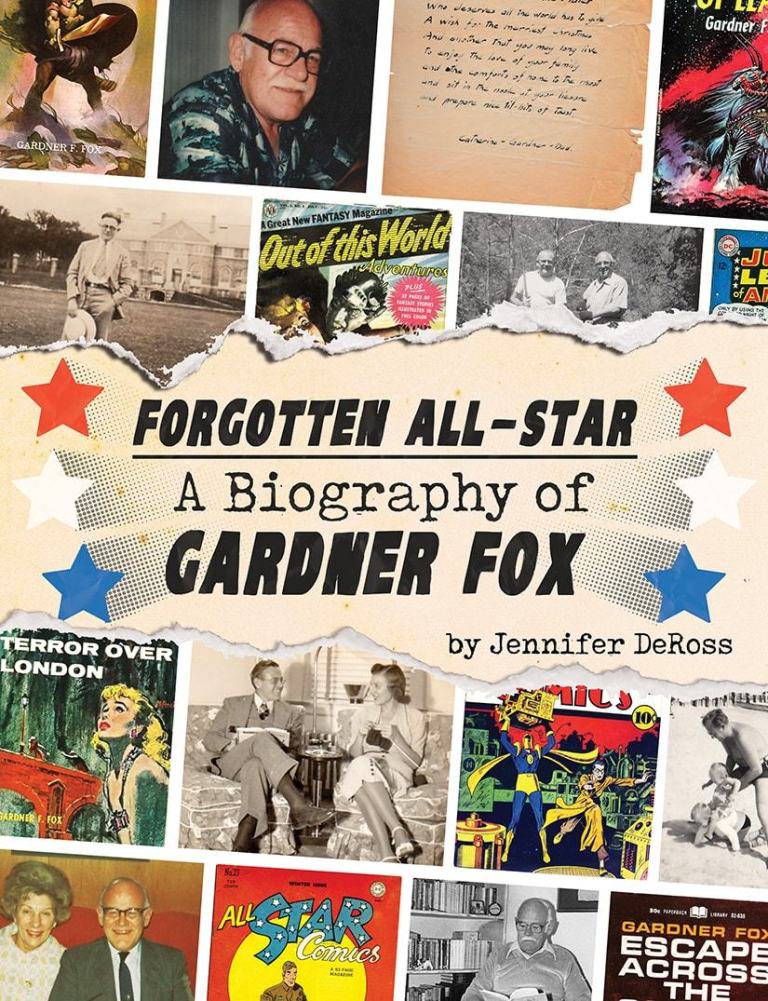
Biography (Gardnerffox.com): This book is far overdue! Why wasn’t this book written twenty years ago? The comic book and pulp paperback industries, primarily American, brought the majority of what the world consumes as entertainment, today. It should go without being said that most of the people creating for these two industries would not have known the impact their work would have on generation upon generation of creatives.
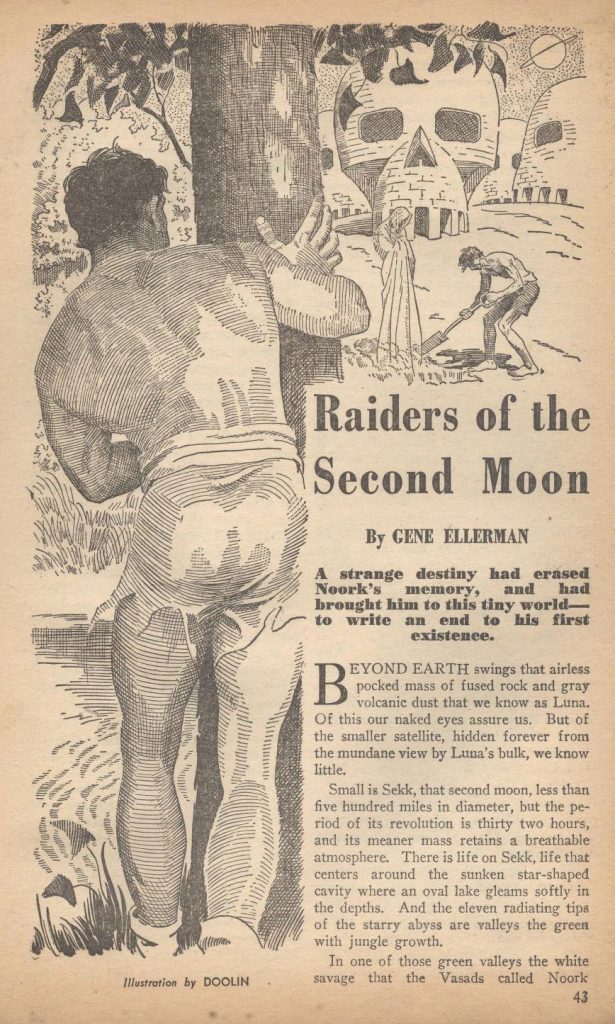
Fiction & RPG (Cirsova): In the past, I’ve made the dangerous claim that good short fiction, like the kind you read in the pulps or in Appendix N, poses a threat to a product-driven OSR whose focus has moved away from systems and into settings materials and modules. My reasoning is that a short story is far easier to digest and build a game around than your typical Gazetteer-style setting product with its oodles of townships, kingdoms, persons of personage, blah blah blah.
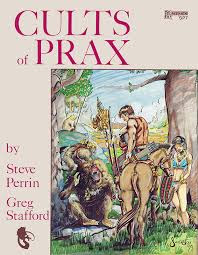
RPG (Rlyehreviews): One of the issues with RuneQuest—recently and beautifully republished as RuneQuest Classic by Chaosim, Inc.—was what it hinted at and did not provide. It hinted at a setting, that of Glorantha, which we know of today in all of its richness and detail through numerous roleplaying games and supplements.

Fiction (Adventures Fantastic): Jack Vance was born on this date, August 28, in 1916. We lost him on May 26, 2013. Vance was a master of both science fiction and fantasy. He often wrote in a highly stylistic manner. I first read Vance in The Hugo Winners, edited by Isaac Asimov, when I was a freshman in high school. That volume contained “The Dragon Masters” and “The Last Castle”.
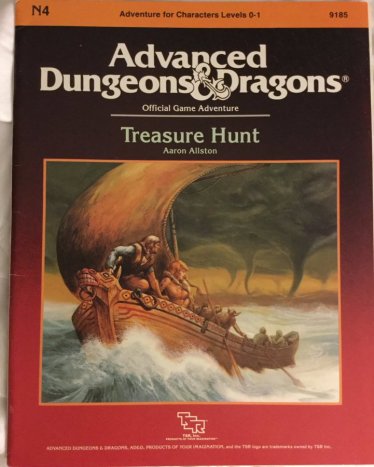
D&D (Skulls in the Stars): As long as I’m still on an old school kick, let me try and catch up with all my posts from twitter! Part 1 of Old School Dungeons & Dragons on the blog can be read here.
Without further ado, here’s part 2! N4: Treasure Hunt (1986), by Aaron Allston. The first thing you may notice when looking at the cover is that this module is unusual in that it is for 0th level characters! What is the deal with that?
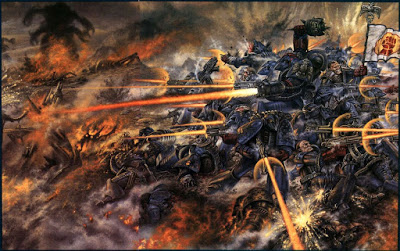
Gaming (Postmodern Pulps): Today I just wanted to highlight the wargame I am most invested in on an emotional level – Games Workshop’s Warhammer 40,000. For those who don’t know what it is – I’ll do this REAL QUICK – a bunch of British tabletop miniatures folks had a set of wargaming rules called Warhammer. It had armies of Elves and Dwarfs and guys with swords and pikes, and orcs and goblins, even skeletons and ghouls and “chaos” warriors and monsters.
D&D (Brain Leakage): Last week, I talked a little about the corporate same-y-ness that overtook later editions of D&D, and how it differed from the kitchen sink, anything goes weirdness of 1st Edition AD&D. That post was written largely in response to a recent episode of Geek Gab.
Macabre Science Fiction (Old Style Tales): After 1906 Wells’ speculative fiction output had rapidly dried, and was only sporadic (and never particularly effective, unique, or good) after that point. During the fifteen years that he did write speculative fiction (which, to clarify, includes sci-fi, weird tales, ghost stories, horror, mystery, fantasy, alternate history, apocalyptic fiction, utopian fiction, and paranormal: all genres which Wells contributed in sizeable ways), Wells wrote nearly two dozen short stories of horror and the supernatural, most of which were of high literary merit as well as being entertaining. fter 1906 Wells’ speculative fiction output had rapidly dried, and was only sporadic (and never particularly e, unique, after that point.
Science Fiction (Tellers of Weird Tales): As I have thought more on it, I see that a distinction can be made between two types of projection, speculation, or extrapolation in science fiction:
First are things that don’t change. These are easy to project into the future because what is true today will also be true tomorrow. I’m thinking specifically here of human nature. If you write convincingly about human nature, your story can never be obsolete. Witness the Iliad and the Odyssey, composed nearly three millennia ago and still comprehendible to us today because its people are real.
Tolkien (Alas Not Me): If much of what we have seen in the first three chapters of Book Four traces a descent for Frodo, the next three chapters will show his path turn upward again. For the pity he showed Gollum is Frodo at his best, and confirms the good opinion Gandalf and Bilbo have of him. Soon, though, and in the name of his quest he uses the Ring to dominate a Gollum whom he would not kill and could not set loose.
Fiction (Postmodern Pulps): I wanted to highlight a series of fiction anthologies being put out by Wolfpack Publishing, and curated/edited by Paul Bishop, a retired LAPD detective and venerable novelist. The first anthology, Pattern of Behavior I read as soon as it was released, and while not every one of the stories was entirely my bag, so to speak, all of them were well-crafted tales from highly-talented authors.
That POLYGON article is an eye-opener!
Very cool to hear about new Paul Bishop anthos.
The article about sitcoms was interesting, but some of the opinions expressed were quite odd.
“[Sitcoms] lasted half a century despite being hated more than pulp magazines, metal music, and violent video games combined. That’s no exaggeration. They were that disliked.”
That statement reminds me of a quote from a great ’90s sitcom: “I’ve been to Vietnam, Afghanistan and Iraq and I can say without hyperbole this is a million times worse than all of them put together.”
skulls and stars dude completely used up my daily ration of exclamation points. I do not think I can possibly read another.
That review of Cults of Prax by Rlyehreviews is on the money. Glorantha had been introduced by the board game White Bear & Red Moon in 1975 and given structure by the Runequest rules but it was Cults of Prax that fleshed it out and breathed life into it.
I was running a RQ campaign at the time and the effect on gameplay was electrifying. My players literally wore the cover off the book in a few months.